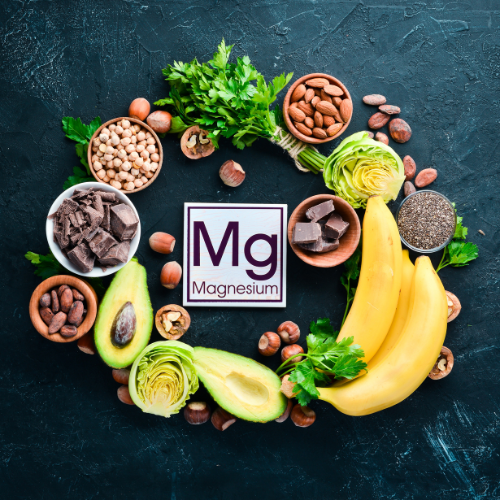Ceremonial grade cacao is typically grown and harvested in a more sustainable and traditional way, and it is processed using minimal heat and without the use of chemicals. Cacao is o a superfood that is packed with magnesium. Ceremonial grade cacao is a type of cacao that is used in traditional ceremonies, and it is considered to be a higher quality cacao than other types of cacao.
Magnesium is an essential mineral that plays a crucial role in the proper functioning of our body. It is involved in more than 600 biochemical reactions in the body, making it necessary for numerous processes, including energy production, protein synthesis, and muscle and nerve function. Despite its importance, many people do not get enough magnesium from their diet, and this deficiency can lead to a variety of health problems.

- Magnesium is a mineral that is essential for healthy muscles, nerves, bones and blood sugar levels.
- Low Magnesium can lead to a higher risk of health problems such as heart attack, stroke, diabetes or osteoporosis.
- Severe magnesium deficiency can cause symptoms including numbness, muscle cramps and an abnormal heart rhythm.
If you don’t have enough magnesium in your body, you might already have symptoms such as:
- headaches
- loss of appetite
- nausea and vomiting
- fatigue and weakness
Ceremonial grade cacao contains high levels of magnesium, which is important for many processes in the body, including energy production, muscle function, nervous system function, bone health, and cardiovascular health. In fact, ceremonial grade cacao is one of the richest sources of magnesium among all foods, with one ounce of ceremonial grade cacao containing around 64 milligrams of magnesium.
In addition to its magnesium content, ceremonial grade cacao also contains other beneficial compounds, including flavonoids and antioxidants. Flavonoids are a type of phytonutrient that has been shown to have anti-inflammatory, anti-cancer, and anti-aging properties. Antioxidants, on the other hand, help to protect the body from damage caused by free radicals, which are unstable molecules that can damage cells and contribute to ageing and disease.


